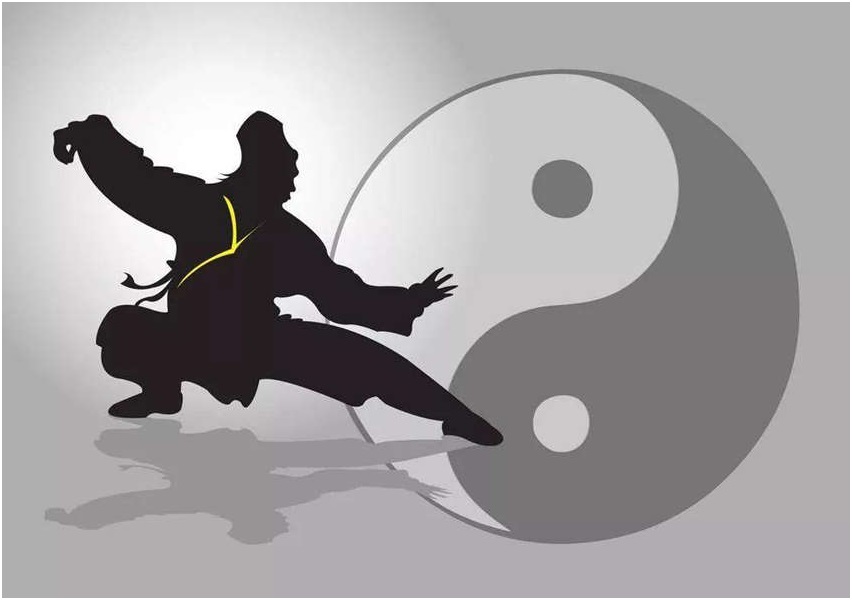
What Is Tai Chi?
What Is Tai Chi? This ancient Chinese practice involves breathing, movement, and balance. It also reduces stress, improves balance and flexibility, and helps prevent falls. This article will discuss the benefits of Tai Chi. If you’re curious about this ancient art, learn more about its benefits. Read on for a quick look at the benefits of Tai Chi. Here are the main reasons why you should give it a try. You’ll be amazed by what you’ll learn.
Reduces stress
Recent studies have shown that Tai Chi, a form of gentle exercise, can reduce stress. This gentle form of movement has been shown to reduce stress by increasing vigour, decreasing anxiety, and improving mood. The stress-reducing effect of Tai Chi is similar to the effects of walking at six kilometers per hour. A regular Tai Chi practice is like moderate exercise and is beneficial for people who are stressed out or who have a difficult time focusing.
Tai Chi helps relieve stress by improving breathing. When we are stressed, we often breathe erratically, which deprives us of oxygen, which sets off a negative feedback loop that triggers a full-blown stress response. Tai Chi teaches us to breathe deeply and steadily. Breathing is crucial to survival. Regular movements of Tai Chi also help to improve balance and relaxation throughout the body. This helps us cope with the stresses of our daily lives.
One study found that Tai Chi was effective at reducing stress, and that it was even effective for people with severe depression. The researchers found that Tai Chi training reduced levels of NF-kB, a gene that controls the production of several inflammatory cytokines. They found that this protein is activated by loneliness and stress, which are two of the major triggers of stress. By engaging in Tai Chi, this protein is dampened.
Improves balance
The effects of Tai Chi on balance have been noted in many clinical studies, with one study even indicating that it can improve the ability of stroke patients to regain balance after the exercise. To measure how well Tai Chi improves balance, G.C. used a sensory organization test consisting of six tasks of increasing difficulty. Clinical norm-referenced balance assessments measure dynamic and static balance abilities. The results of these studies will inform future research into the effectiveness of Tai Chi for balance.
Age-related decline in bone density causes many people to lose their balance as they age. Tai Chi can help improve balance in seniors by addressing imbalances in the skeletal structure. This movement-based exercise improves the body’s proprioception, or input from touch sensors in the muscles. Moreover, balance requires a careful integration of sensory input from the eyes, ears, and hands. The more proprioceptive you are, the less likely you are to fall.
The art of Tai Chi combines a series of postures and slow movements with mental focus. Tai Chi can be performed both sitting and standing, and researchers suggest that it could be more effective than other forms of exercise in reducing the risk of falling. Tai Chi is also thought to improve the balance of Parkinson’s patients. People with Parkinson’s disease may benefit from a Tai Chi routine as it strengthens the muscles and reduces the fear of falling.
Improves flexibility
The practice of Tai Chi involves slow, rhythmic movements that emphasize the fluidity of motion. Regular practitioners report improved flexibility, balance, and strength. These benefits are attributed to the stretching, bending, and twisting of their arms and legs. These movements reverse the effects of age-related stiffness. Here are the benefits of Tai Chi. Listed below are some of the many benefits of Tai Chi. Read on to discover more about the practice of this ancient art.
One study found that after 24 weeks of Tai Chi, older males improved in both their static balance and sit-and-reach flexibility. The study’s findings suggest that Tai Chi can improve balance in older adults, particularly if the practice is paired with a regular exercise program. Although more research is needed to confirm whether Tai Chi can improve flexibility, it may be a valuable addition to any exercise program. While it may not be a cure-all, it can help people stay active, maintain balance, and feel better.
Besides improving flexibility, Tai Chi can help improve balance and reduce falls. As we age, our ability to sense where our bodies are in space becomes impaired. As a result, Tai Chi can help prevent falls. This practice helps people improve their proprioception, which is a function of stretch receptors in the muscles and ligaments. It also helps improve balance, strengthens muscles, and improves mental health. Tai Chi is easy to learn and can benefit people of all ages.
Reduces falls
The current study looked at the evidence on whether Tai Chi improves balance and reduces falls. This study used two methods: systematic review (SR) and meta-analysis. The SR and meta-analysis were both conducted in accordance with PRISMA guidelines. Two independent reviewers carried out the data extraction and study selection. The researchers performed subgroup analyses based on the type of Tai Chi intervention used. The results are summarized below.
Among the many benefits of Tai Chi are its ability to improve balance, muscle strength, co-ordination, and mind. It also improves overall physical performance, making it an excellent fall prevention exercise. Tai Chi is a natural form of exercise that promotes health in nearly every aspect. This ancient Chinese exercise has been used for thousands of years to help people of all ages improve their balance and prevent falls. The benefits of Tai Chi go beyond preventing falls.
This multimodal exercise focuses on soft movements in opposite directions. It improves strength, flexibility, concentration, balance, and gait. A study conducted in 2008 found that Tai Chi reduced the risk of falls by 43 percent when performed twice a week for 24 weeks. The results were comparable to those of studies that focused on Tai Chi for fall prevention. The study authors stressed the need for more research and re-analysis of Tai Chi research.
Improves mental quietness
There’s no doubt that Tai Chi can help improve mental quietness. The Chinese have a word for it called “Jing” and it means “mind quietness”. Mental quietness is not something most people have, because most of us have a racing mind and are constantly thinking about everything, from work to social life. Jing is like the calm of a rain forest. It’s a state where you can just listen to your body.
While Tai Chi is an exercise, it can also provide benefits for chronic illnesses. It improves quality of life for people with COPD and arthritis, and may even help with heart failure and breast cancer. In addition to physical benefits, Tai Chi also helps improve mental and emotional balance, and promotes deep breathing and focus. It helps you stay calm and focused during stressful times, which is why it’s best practiced in a peaceful environment.
Improves executive function
In a study that used a multi-site, nonequivalent-control group pretest-posttest design, the researchers found that Tai Chi improved executive function in elderly people with mild cognitive impairment (MCI). The intervention group was assigned to 16 weeks of Yang-style simple Tai Chi training, consisting of one hour-long lessons. The control group did not receive any training, but instead joined community center recreation programs. The researchers assessed global cognitive status and instrumental activities of daily living (IADL) performance by administering the Chinese version of the Mini-Mental State Examination.
Because of the high cognitive demands of Tai Chi, this exercise has more benefits for executive function than brisk walking. In addition, it helps improve cardio respiratory fitness and dynamic balance. The exercise also reduces the risk of falling, thereby improving balance and reducing the likelihood of injury. As a result, Tai Chi improves executive function in both adults and children. Further, it has been shown that Tai Chi can lead to enhanced concentration and improved memory in older adults.
Future studies should use appropriate comparison groups and follow-up arrangements to assess how Tai Chi affects cognitive health over the long term. To determine the impact of Tai Chi on executive function, large-scale randomized control trials are necessary. The results of these trials should include an adequate control group and appropriate follow-up arrangements. The study should also consider whether Tai Chi improves executive function in older adults with mild cognitive impairment. Although more studies are needed to determine whether Tai Chi has lasting effects on cognition, there is a positive impact on our overall health.
Promotes serenity
Tai Chi is a slow, flowing system of gentle movements that can help you relax and find serenity. It is a form of meditation that promotes serenity through the flow of Qi (life force) throughout the body. A Certified Tai Chi Instructor, Sheri Nicholson has several certifications, including Personal Trainer, Pilates Instructor, and Dance Teacher. She is experienced in coaching programs for Parkinson’s disease, as well as others, and will tailor the program to your specific needs and goals.
During a Tai Chi workshop, you’ll learn basic movements as well as techniques for managing stress. There are many workshops and classes around Australia and the world. The goal is to help others practice Tai Chi safely and effectively. Through Tai Chi, you’ll discover how to improve your health and manage your aging process. And if you’ve always wanted to learn more about the art of Chinese martial arts, this is the perfect way to get started.
Tai Chi As A Martial Art?
Is Tai Chi A Martial Art? The answer to this question is yes. It is a form of martial arts that Is Tai Chi A Martial Art? The answer to this question is yes. It is a form of martial arts that emphasizes mindfulness of movement and intention. Practicing the movements with a partner is an excellent way to improve control of the body and mind. This art is often compared to a sport, as it requires the athlete to use the correct form to be effective against an opponent. It can be a good fit for athletes because of its meditative benefits and its emphasis on physical fitness.
Despite its name, Tai Chi is a centuries-old Chinese martial art. It is a descendant of qigong, an ancient discipline with roots in traditional Chinese medicine. Tai chi practitioners move gracefully in parks throughout China, and you can see them practicing the art in modern parks. Although Tai Chi was originally a form of self-defense, it has a wide range of benefits.
The martial aspect of Tai Chi relies on a student’s ability to read the opponent’s movements and center of gravity. The primary aim of a martial T’ai Chi Ch’uan student is to disrupt the opponent’s center of gravity. Tai chi students train in three basic ranges. Each range consists of pushing, open-handed strikes, and kicks, while the lower torso is used to perform various postures.

